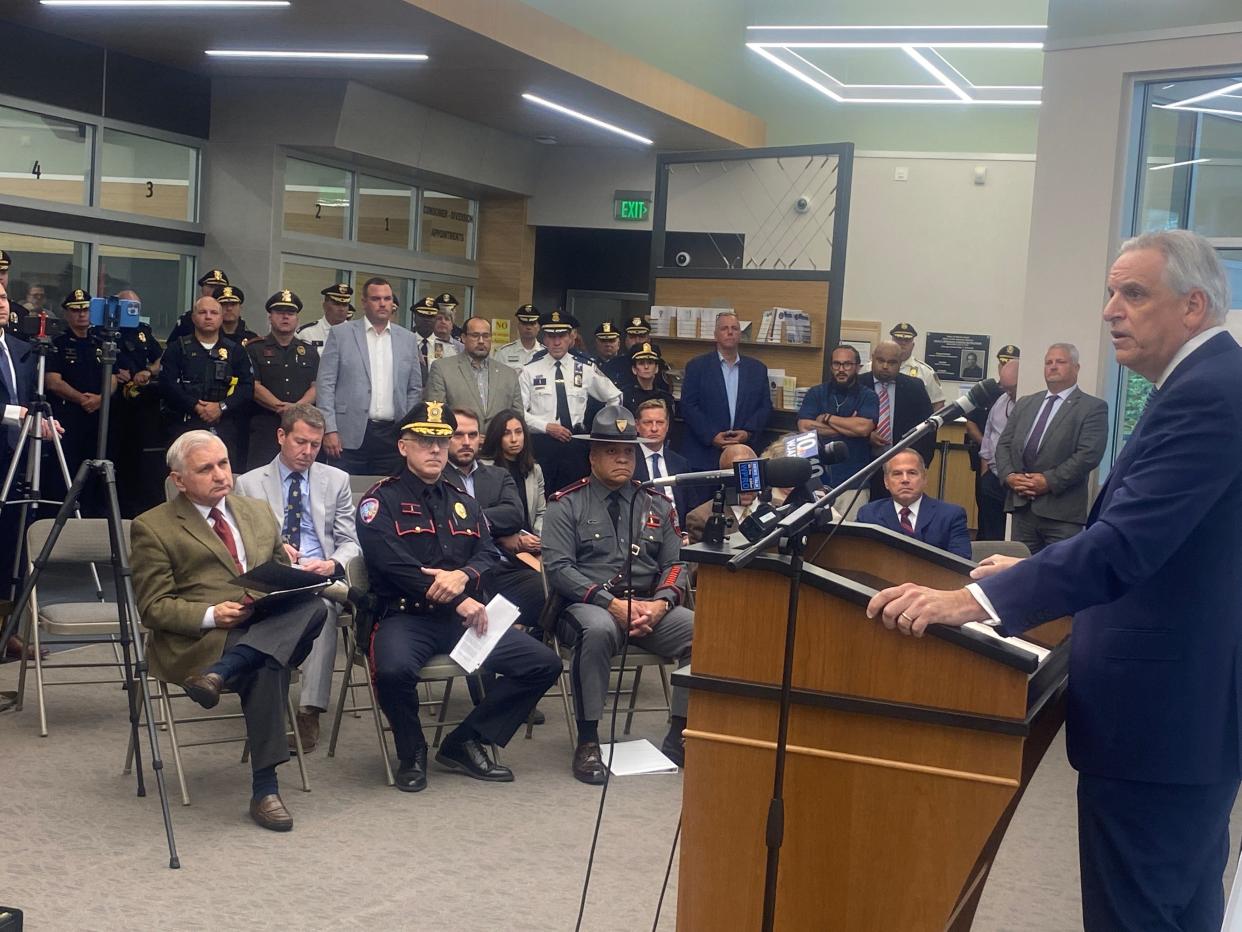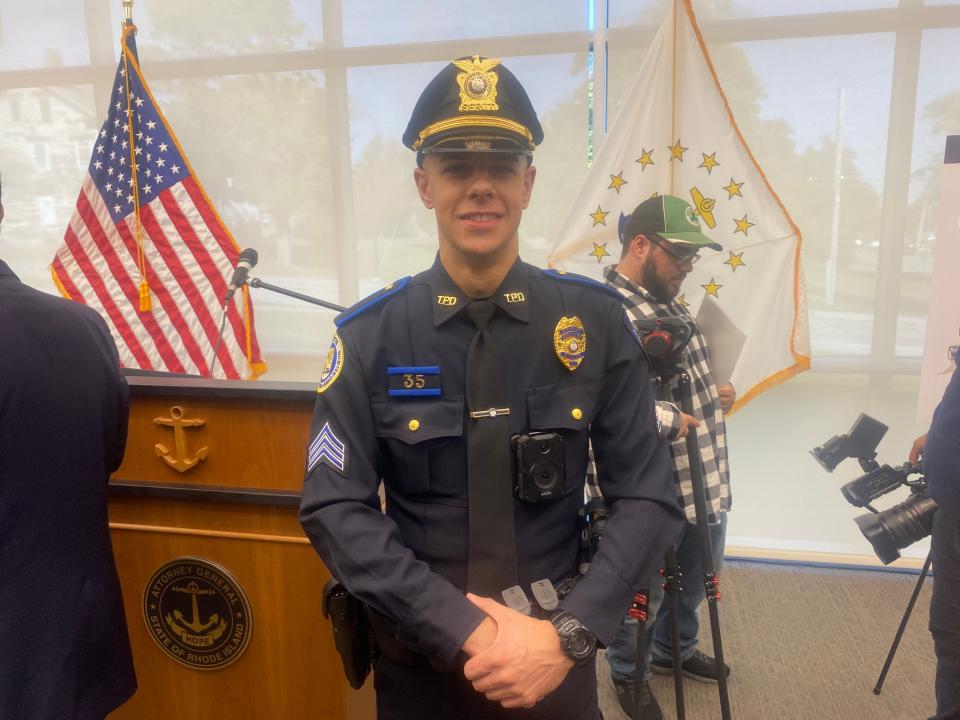Grant money will enable nearly every Rhode Island police officer to have a body camera

Rhode Island police departments are poised to spend $16 million in state and federal grants to equip police officers with body cameras and cover the costs of managing and operating the equipment.
The architects of the Statewide Body-Worn Camera Program announced the grant awards to 42 police organizations on Wednesday as Rhode Island moved closer to a deployment of 1,773 cameras – roughly a camera for every front-line police officer, according to Attorney General Peter Neronha.
"That is a lot of law-enforcement officers [who] will now have the tools to bring us into the century in which we are operating," Neronha said.
State police Col. Darnell Weaver described the grant announcements as a culminating moment after months of coordination and planning work by police leaders and their agencies.
More: More Rhode Island police to wear body cameras on patrol. Warwick launches pilot program
"A key milestone as we work to address the issues that are challenges in policing today," he said.
"Cameras will add transparency, provide accountability and give a point of view, of perspective, to every police contact," Weaver said.
The grant money was apportioned to finance the program for five years.
The awarding of the money carries significance beyond finances.
Police organizations that receive the money must comply with a detailed set of regulations on the use and operation of body cameras.
The set of rules and regulations, said Weaver, "protects constitutional rights, documents critical interactions between the police and members of the public, promotes transparency and reflects the thoughtful input of citizens and advocacy groups."
The regulations, which are set to take effect Oct. 26, establish the statewide program itself.
What are ghost guns? Police say they pose a growing threat in Rhode Island.

They set forth a wide range of responsibilities for officers who are not working undercover and are assigned to wear the cameras. Those responsibilities range from attending to camera equipment before and after each shift to activating a body camera when the situation calls for it.
Those situations are when they respond to calls, initiate "any investigative or enforcement activity involving a member of the public," begin any pursuit or emergency driving, or assist another officer in any such situations.
The regulations are the product of a development process that grappled with a collection of thorny questions.
When will police release body camera footage?
How soon should the public have access to a body camera video that shows an officer using deadly force?
"No later than upon the substantial completion of the investigation," the policy says in part. "Substantial completion," it says, means evidence has been collected and witnesses have been interviewed."
Neronha described the policy as a "living document" that will need to change as time goes on.
More: Trump administration insider from RI led the federal COVID response. Then Jan. 6 happened
The program aims to provide officers with discretion in certain situations.
One example is when someone who wants to help police by cooperating with an investigation or providing a tip doesn't want to be recorded on video.
South Kingstown Police Chief Matthew C. Moynihan said a small group of officers has been working with the cameras since March as part of a pilot program.
He said he isn't aware of any such requests.
The South Kingstown force, like many others in the state, is aiming to have the body cameras in place by Jan. 1.
The Smithfield police department is the only municipal police department that's not participating in the program, Neronha said.
Providence police have worn cameras for years.
But the level of participation in the program is a big signal that Rhode Island police from one end of the state to the other are ready to incorporate video recording into much of their daily work.
A Tiverton police sergeant, Jason Kobelecki, wore his Axon camera, next to his tie. Magnets kept it fixed to a plate of steel beneath his shirt.
Kobelecki counts himself among police officers who see a lot of value in the cameras.
Mike Imondi, president of Providence's police union, who did not speak at the event, said Providence officers have seen many benefits from the cameras.
They also recognize the importance of making sure that camera footage isn't employed abusively, he said.
He pointed out that in Providence, a computer helps supervisors select video clips randomly when they check in on officers by monitoring video.
The event drew U.S. Rep. David N. Cicilline; U.S. Sen. Jack Reed and police chiefs from all over the state to the attorney general's headquarters in Cranston.
Reed said that body cameras help police win convictions and also help the public hold police accountable.
Jim Vincent, president of the Providence Branch of the NAACP, called them tools that have become a "best practice" throughout the country.
"Not only was this a worthwhile idea," he said, "but it was a worthwhile investment."
This article originally appeared on The Providence Journal: RI grants awarded to fund statewide police body camera program

